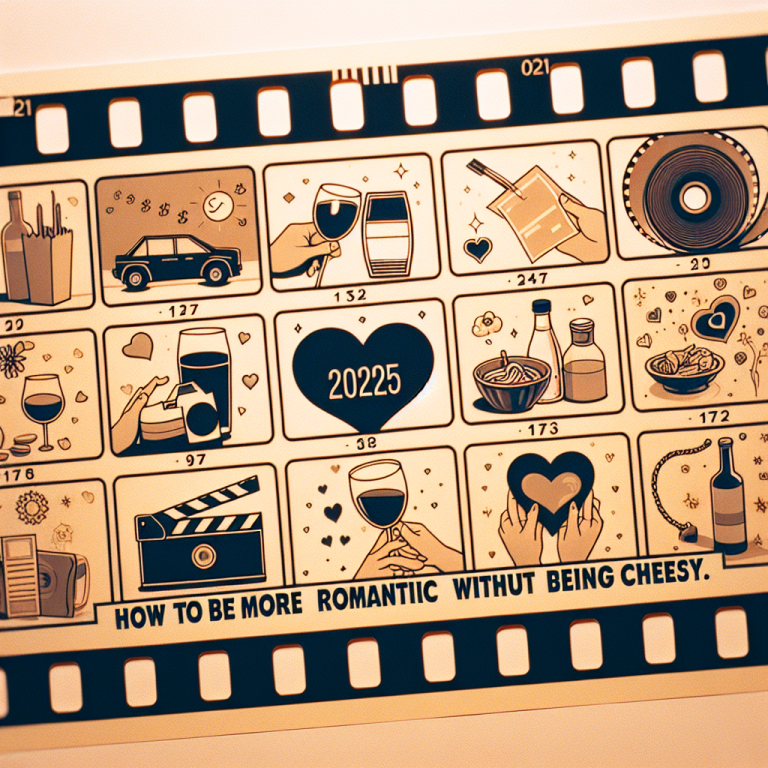What to do when you feel taken for granted
Acknowledge Your Feelings
Identify What’s Bugging You
Let’s face it, feeling taken for granted can sting. The first step is to really tune into what you’re feeling. Are you overwhelmed at work, or is it a friend who never seems to appreciate your effort? Instead of brushing those feelings aside, sit down for a moment and think about why you feel this way. That’s the key to figuring out a solution.
When I find myself feeling this way, I often grab a journal and jot down specific instances where I felt overlooked. This helps me clarify my feelings instead of just wallowing in them. It’s a bit like shining a light into a dark corner: suddenly, everything’s a bit clearer and you can see what needs work.
Recognizing those emotions is not just okay—it’s important. It’s your heart telling you something needs attention. So don’t shove it under the rug. Honor those feelings by exploring them honestly.
Talk About It
You know what often helps? Sharing your feelings with someone who cares—whether that’s a buddy, a family member, or even a therapist. When I first tried discussing my feelings of being taken for granted, it opened up so many doors. Sometimes just talking about it can lighten the load you’re carrying.
Be open and honest about how you feel. Try not to point fingers; instead, use “I” statements. For example, “I feel unappreciated when…” rather than “You never appreciate me.” That little shift in wording makes a world of difference, trust me!
It’s possible that the other person doesn’t even realize their actions are affecting you. So, by having this conversation, you’re giving them a chance to understand and adjust. It’s a pretty empowering thing to do.
Practice Self-Affirmation
When you feel taken for granted, it’s easy to beat yourself up or start questioning your worth—don’t do it! Instead, sprinkle in some self-affirmation. Each day, I remind myself why I’m valuable and what positive things I bring into the world, whether at home or at work.
Create a little mantra that resonates with you. It could be something like, “I am worthy of appreciation,” or “My efforts matter.” When I first started doing this, it felt goofy, but over time it grew on me. It’s amazing how powerful positive self-talk can be!
Consistency is key. This isn’t just a one-and-done deal; make it a part of your daily routine, especially during tough times. The more you affirm yourself, the less those feelings of being undervalued will stick. You’ll start to think, “Hey, I matter!” and that’s a beautiful place to be.
Set Healthy Boundaries
Understand Your Limits
Now let’s talk boundaries. One of the biggest lessons I had to learn was that having limits isn’t selfish—it’s essential. If you feel like you’re being walked all over, it might be time to reassess what you’re willing to accept from others. Knowing where your boundaries lie can prevent you from feeling taken for granted in the first place.
Think of your boundaries as a protective fence around your space. It’s okay to say “no” sometimes. For a long time, I felt guilty saying no, but I learned quickly that my mental health comes first. Setting boundaries isn’t about shutting people out; rather, it’s about creating a safe space for both you and others.
Start small by practicing saying no in low-stakes situations and notice how liberating it feels. Over time, you’ll gain confidence to maintain those boundaries in all areas of your life.
Communicate Your Boundaries Clearly
Once you’ve identified your boundaries, it’s time to communicate them. Believe me, it’s easier than you think! When I first tried to establish my limits, I was nervous about how others would react. But the truth is, most people will respect you for being upfront about what you can and cannot do.
There’s no need to go overboard; just be clear and straight to the point. For instance, if someone asks you to take on additional work that you cannot handle, a simple, “I appreciate the opportunity, but I can’t take that on right now,” can go a long way. This kind of clarity helps prevent misunderstandings and will reduce feelings of being unappreciated.
Remember, it’s not about being harsh or unkind. It’s about taking care of yourself while being respectful to others. You can believe in your value while still honoring others’ feelings.
Stick to Your Guns
Once you’ve communicated your boundaries, it’s important to stick to them. This might feel tough initially. Yes, you may encounter resistance, but remember, this is about your well-being. I learned that the more I stuck to my guns, the more respect I earned from folks around me.
If someone tries to push past your boundary, gently remind them of your previous conversation. Consistency shows that you mean business, and eventually, people will get used to your limits. It might take time and some hard conversations, but it’s totally worth it.
Over time, you’ll find that others will start to respect your boundaries more and, in turn, it will foster healthier relationships. You’ll feel appreciated because you’ve taken the necessary steps to ensure your needs are met.
Strengthen Your Connections
Invest Time in Relationships
One way to combat feelings of being taken for granted is to invest time in your relationships. I know life gets busy, but dedicating quality time to your loved ones can help build deeper connections. When you genuinely connect with others, it opens up a two-way street of appreciation.
Create regular hangout times or phone calls just to catch up. Whether it’s a coffee date or a movie night, these moments breathe life into any relationship. And, as you engage, you’ll likely find that appreciation flows both ways. People value what they invest time in!
When I started focusing on quality time, I noticed that my interactions felt more meaningful and fulfilling. It became a mutual appreciation as we supported each other’s needs and built strong bonds.
Express Appreciation
If you want appreciation, you’ve got to show it! When I began making it a priority to express gratitude to those around me, something remarkable happened. Others started reciprocating that appreciation, creating a wonderful cycle of positivity.
Take the time to acknowledge the efforts of those close to you, no matter how small. A simple “thank you” or a heartfelt note can make someone’s day. This also encourages a culture of recognition within your relationships, making everyone feel valued.
The more I practiced this, the more grateful I felt, too! It’s amazing how those little acts of kindness can uplift both the giver and the receiver in a relationship.
Seek Mutual Respect
Finally, it’s essential to find mutual respect in your relationships. I’ve learned that relationships are a two-way street: both parties should feel appreciated and valued. If you feel like you’re giving more than you’re receiving, it’s worth addressing it.
If you notice a pattern of one-sidedness, it might be time for another heart-to-heart conversation. Speak from a place of love, and let them know how you appreciate their presence but also desire to feel uplifted in return. Communication can help you reshape the relationship into a more balanced one.
And remember: relationships take work from both ends. When you both prioritize respect, appreciation, and open communication, you’ll be surprised at how much stronger your bond becomes.
Take Time for Yourself
Engage in Self-Care
When I find myself feeling drained or overlooked, I know it’s time to check in with myself. That’s when self-care becomes crucial. Whether that’s indulging in a bubble bath, reading a book, or going for a long walk, self-care isn’t selfish; it’s necessary!
Taking care of myself helps to replenish my energy and mental clarity. I’m more productive and more able to deal with relationships when I make time for activities that lift me up. Let’s be real, how can we expect to feel valued by others if we’re not valuing ourselves first?
Set aside time each week—no matter how busy life gets. It’s worth it! You’ll find that taking time for yourself will ultimately make you feel more appreciated by others because you’ll be radiating positivity.
Explore New Interests
Sometimes, it might also be time to shake things up a bit! Engaging in new activities or hobbies can reignite your passion and help with feelings of being unrecognized. I remember picking up painting, and it completely transformed how I viewed appreciation.
Trying new things allows you to discover what truly makes you happy and fulfilled. It takes the focus off the external validation and puts it back on what you enjoy. Plus, it often leads to meeting new people who appreciate you for who you are.
Don’t be afraid to step outside of your comfort zone; it can lead to surprising rewards in terms of self-worth and appreciation.
Reflect and Reset
Finally, reflecting on your experiences can offer valuable insight. Spend some quiet time assessing your feelings and thoughts. I’ve found that reflection can help me understand what I’m truly seeking in relationships and how I can cultivate them better.
Maybe it’s a matter of wanting more supportive friends or setting clearer boundaries. Whatever it is, give yourself the space to reset your thoughts. Journaling can be a great tool for this as well.
Once you have a clearer perspective, you’ll feel more empowered to act accordingly. Resetting your mindset is just as essential as setting boundaries, and it can lead to eventually feeling appreciated more in all areas of life.
FAQs
- What should I do first when feeling taken for granted?
- The first step is to acknowledge your feelings. Take some time to identify what specifically is bothering you and write it down to clarify your emotions.
- How can I tell someone I feel unappreciated without making them defensive?
- Focus on using “I” statements instead of “you” statements. For instance, say “I feel unappreciated when…” This opens the door to a more constructive conversation.
- Is it okay to set boundaries in my relationships?
- Absolutely! Setting boundaries is a healthy way to maintain your well-being and ensure that your needs are being respected. It’s not selfish—it’s self-care.
- How do I ensure mutual respect in my relationships?
- Practice open communication and regularly express appreciation for one another. Establishing a culture of gratitude can help both parties feel valued.
- What’s a good reminder to practice self-care regularly?
- Create a self-care routine that fits your schedule. Make it a non-negotiable part of your week. Prioritize activities that rejuvenate you and bring you joy.










